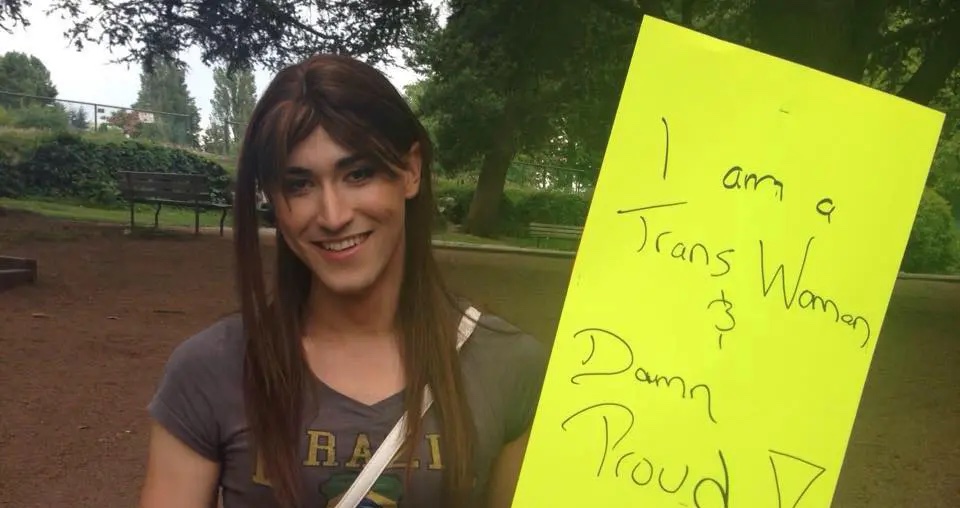
On Tuesday March 6th, 2018, I attended a 45th Anniversary celebration for the Women’s, Gender and Sexuality Studies Program at The George Washington University. The department had brought alumna Lisa Bowleg to give a presentation on her work in the field of Women’s, Gender and Sexuality Studies, with an emphasis on intersectionality. As Dr. Bowleg gave her presentation on her work researching HIV and condom usage in different types of Black communities, we came to a slide describing her work with Black Gay, Bisexual, and Lesbian individuals. The acronym that stood starkly at the top of the large projected screen was “LGB.” It took me a second, but I looked at the acronym again, specifically excluding that last, small letter “T”. Now, the slide only discussed Dr. Bowleg’s work with Lesbian, Gay and Bisexual people, which may be the reason she did not use the “T” at the end of this acronym. But if you are going to use such a specific describer for talking about queer people, why not just say “Lesbian, Gay and Bisexual people” rather than “LGB” people? The longer the presentation went on, the more I noticed the specific exclusion of transgender individuals from the otherwise incredible and interesting research Dr. Bowleg was conducting. I spent the rest of the presentation formulating how to express my unease at the exclusion of the “T” on her slide that had been specifically set aside for members of the LGBTQIA community. Her presentation came to an end, and I tentatively raised my hand.
“Dr. Bowleg, I see you’ve done research on HIV and condom usage in the Black lesbian, gay, and bisexual communities. Have you ever done research in regard to, or come across other works, that delve into these same issues with the Transgender community as well?” Dr. Bowleg’s quickly responded, “Well, yes, we did come across a few individuals, but there were only four, and so I did not include them in my research.”
Four. Four? My mind was reeling. Certainly, there are more than four Black transgender people, especially in Washington, DC. And even if there were only four black transgender people, wouldn’t their stories and experiences be worth including in such an important study on the prominence of HIV and condom usage? I understand that I have not done extensive research, nor do I have a Ph.D. in anything, but, at the very least, I understand that saying “Oh, I could only find 4 black transgender people” is unacceptable research methodology as well as discriminatory towards transgender individuals. Especially in a discussion with so much emphasis on intersectionality, why were transgender individuals suddenly not worth including? Being a non-binary person in a Women’s Gender and Sexuality Studies program, I have come across similar situations in my classes. In Feminist and Women’s studies, researchers often see the word “gender” and think on a binary scale, Man vs. Woman. I have brought this issue up with professors before and been told, “There simply isn’t enough research on transgender and non-binary people”. Well, I would like to call bullshit. I am tired of being swept under the rug, and I am tired of being excluded from the discussion.
Across the globe, transgender individuals, and specifically transgender women of color, are the most at-risk group of people for violence and discrimination. We need to be more inclusive of all members of the LGBT community. Our research does as well. When professors tell me there is “not enough” research to warrant a discussion of non-binary and transgender individuals, it is the explicit exclusion of transgender individuals, and passivity towards the importance of their inclusion in research such as that of Dr. Bowleg, which prevent that discussion from happening.
(Image Credit: Equality Archive)

